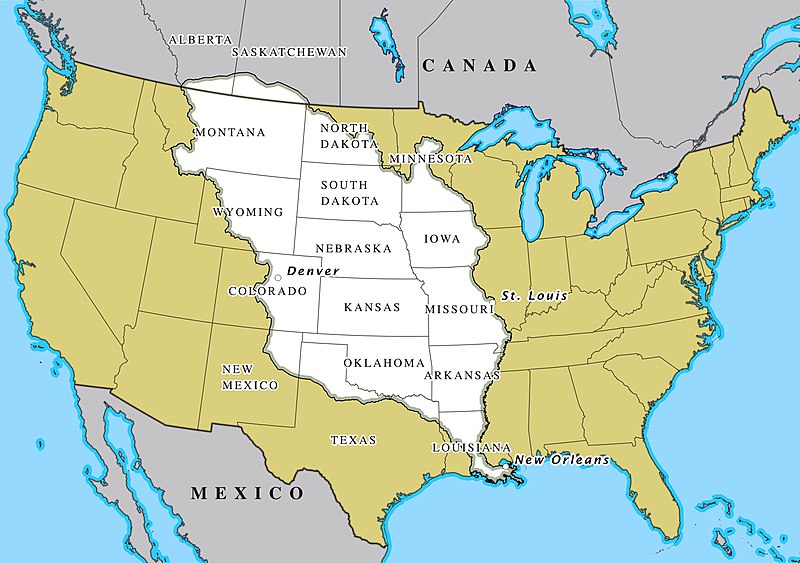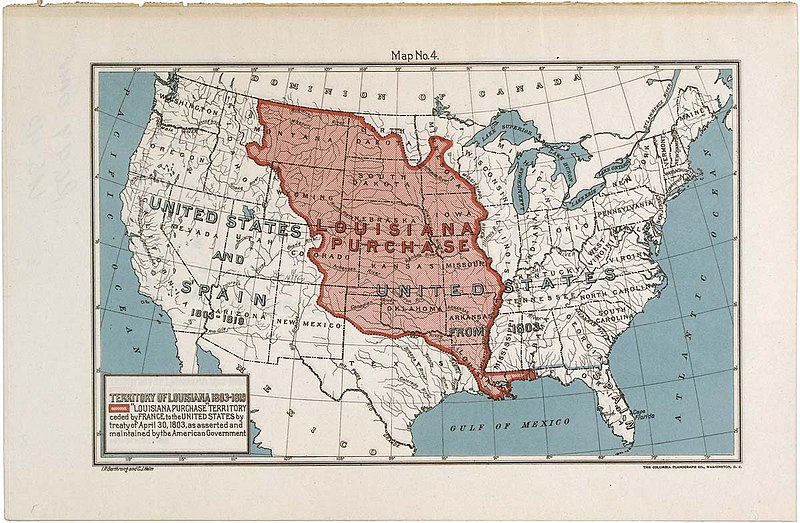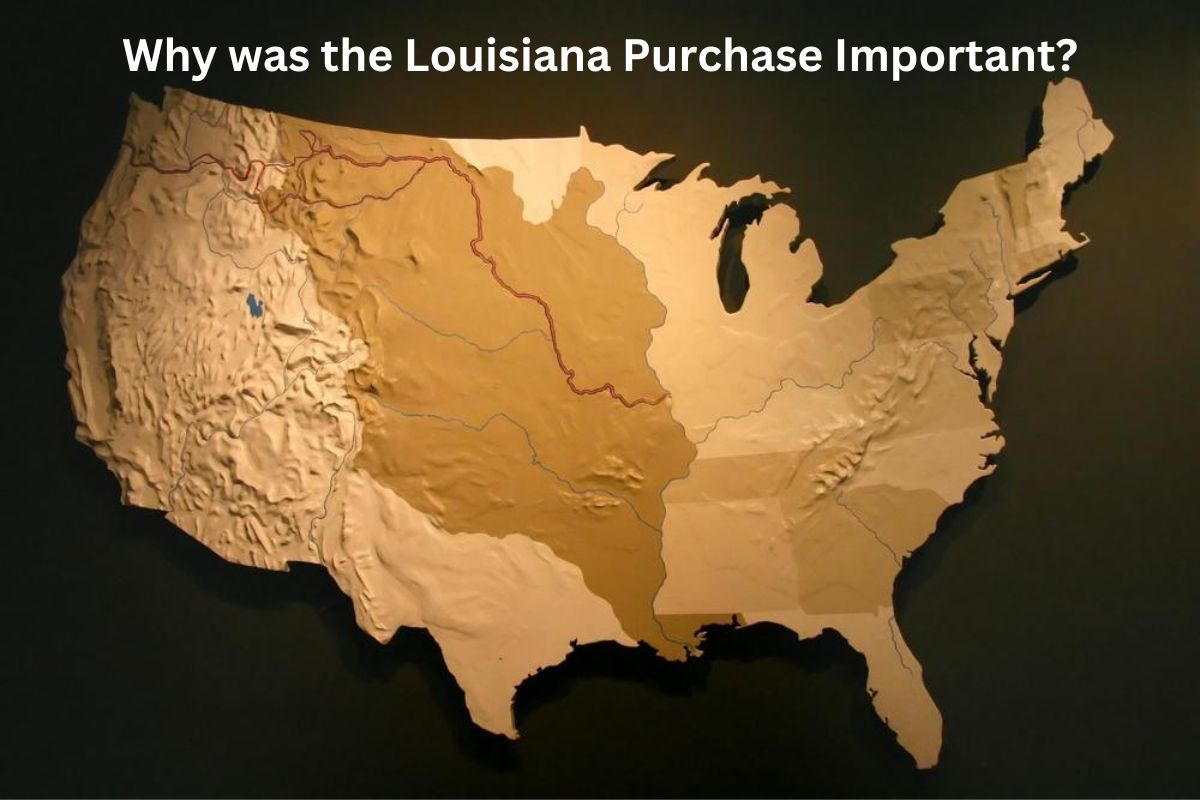The Louisiana Purchase was one of the most significant events in American history. In 1803, President Thomas Jefferson negotiated the purchase of the Louisiana Territory from France for $15 million.
This massive land acquisition doubled the size of the United States, giving the country control of the Mississippi River and access to the Gulf of Mexico.
The Louisiana Purchase was important for several reasons. It opened up vast new territories for westward expansion and settlement, which helped to fuel the growth of the American economy. It also secured American control of the Mississippi River, which was a vital transportation route for goods and people.
Additionally, the Louisiana Purchase removed a potential threat to American security by preventing European powers from establishing colonies in the region. Overall, the Louisiana Purchase was a transformative event in American history that helped to shape the country’s future.
What was the Louisiana Purchase?
The Louisiana Purchase was a significant event in American history that occurred in 1803. It involved the acquisition of a vast territory in North America, which was previously owned by France. The territory covered an area of approximately 827,000 square miles, which included the entire Mississippi River basin and parts of present-day Canada.

The Louisiana Purchase was made possible by the efforts of President Thomas Jefferson, who was eager to expand the United States’ territory. He sent James Monroe to France to negotiate with Napoleon for the purchase of the Louisiana Territory. After lengthy negotiations, France agreed to sell the territory to the United States for $15 million.
Also Read: Why Did Napoleon Sell the Louisiana Territory?
The Louisiana Purchase was a significant achievement for the United States, as it doubled the size of the country and gave it control over the Mississippi River and the port of New Orleans. This allowed the United States to expand westward and facilitated trade with other countries.
Also Read: Louisiana Purchase Timeline
The Louisiana Purchase was also significant for France, as it provided much-needed funds for Napoleon’s military campaigns in Europe. The sale of the Louisiana Territory was a critical turning point in French history, as it marked the end of France’s colonial aspirations in North America.
In conclusion, the Louisiana Purchase was a significant event in American history that had far-reaching implications for both the United States and France. It was a crucial moment in the country’s expansion and helped to shape American history for years to come.
Why Was the Louisiana Purchase Important?
1. Strategic Importance
The Louisiana Purchase was a significant strategic move for the United States. The acquisition of the Louisiana Territory gave the U.S. control over the Mississippi River and the port of New Orleans, which was crucial for the transportation of goods and military operations.
The purchase also provided a buffer zone between the U.S. and European powers, which helped to prevent conflicts.
2. Political Significance
The Louisiana Purchase was a major political achievement for President Thomas Jefferson. The purchase doubled the size of the United States and strengthened the power of the federal government.
It also helped to solidify the Democratic-Republican Party’s control over the government and weakened the Federalist Party.
3. Economic Impact
The Louisiana Purchase had a significant impact on the U.S. economy. The acquisition of new land provided opportunities for expansion and settlement, which helped to stimulate economic growth. The Louisiana Territory was also rich in natural resources, including fertile land for agriculture, timber, and minerals.

Exploration and Expansion
The Louisiana Purchase opened up new opportunities for exploration and expansion. The Lewis and Clark expedition, which was commissioned by President Jefferson, explored the Missouri River and the Rocky Mountains, and eventually reached the Pacific Ocean.
The purchase also led to the settlement of new territories in the western states, including Montana and Kansas.
International Relations
The Louisiana Purchase had a significant impact on international relations. The acquisition of such a large territory made the U.S. a major player on the world stage, and it helped to establish the country as a dominant power in North America.
The purchase also had implications for relations with European powers, particularly Britain, which saw the U.S. as a potential rival.
Constitutionality of the Louisiana Purchase
The constitutionality of the Louisiana Purchase was a matter of debate at the time. Some argued that the Constitution did not give the federal government the power to make such a large land purchase.
However, President Jefferson and his supporters argued that the purchase was necessary for the growth and security of the country.
Impact on Slavery and Native Americans
The Louisiana Purchase had a significant impact on slavery and Native Americans. The purchase opened up new territories for settlement, which led to the expansion of slavery and the displacement of Native Americans. The Missouri Compromise, which was passed in 1820, was a direct result of the purchase and attempted to resolve the issue of slavery in new territories.
Also Read: Facts About the Missouri Compromise
Legacy of the Louisiana Purchase
The legacy of the Louisiana Purchase is still felt today. The acquisition of such a large territory helped to establish the U.S. as a major global power, and it set the stage for westward expansion and the settlement of new territories. The Louisiana Purchase also had a significant impact on American culture, including literature, science, technology, and the visual arts.
In conclusion, the Louisiana Purchase was a significant event in American history that had far-reaching implications for the country’s growth and development. It helped to establish the U.S. as a major power on the world stage and paved the way for westward expansion and the settlement of new territories.
